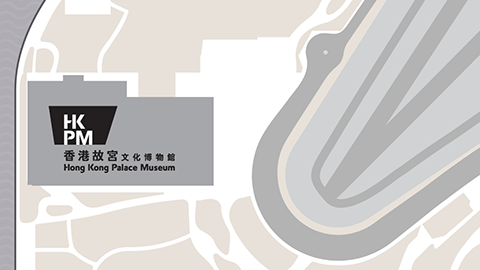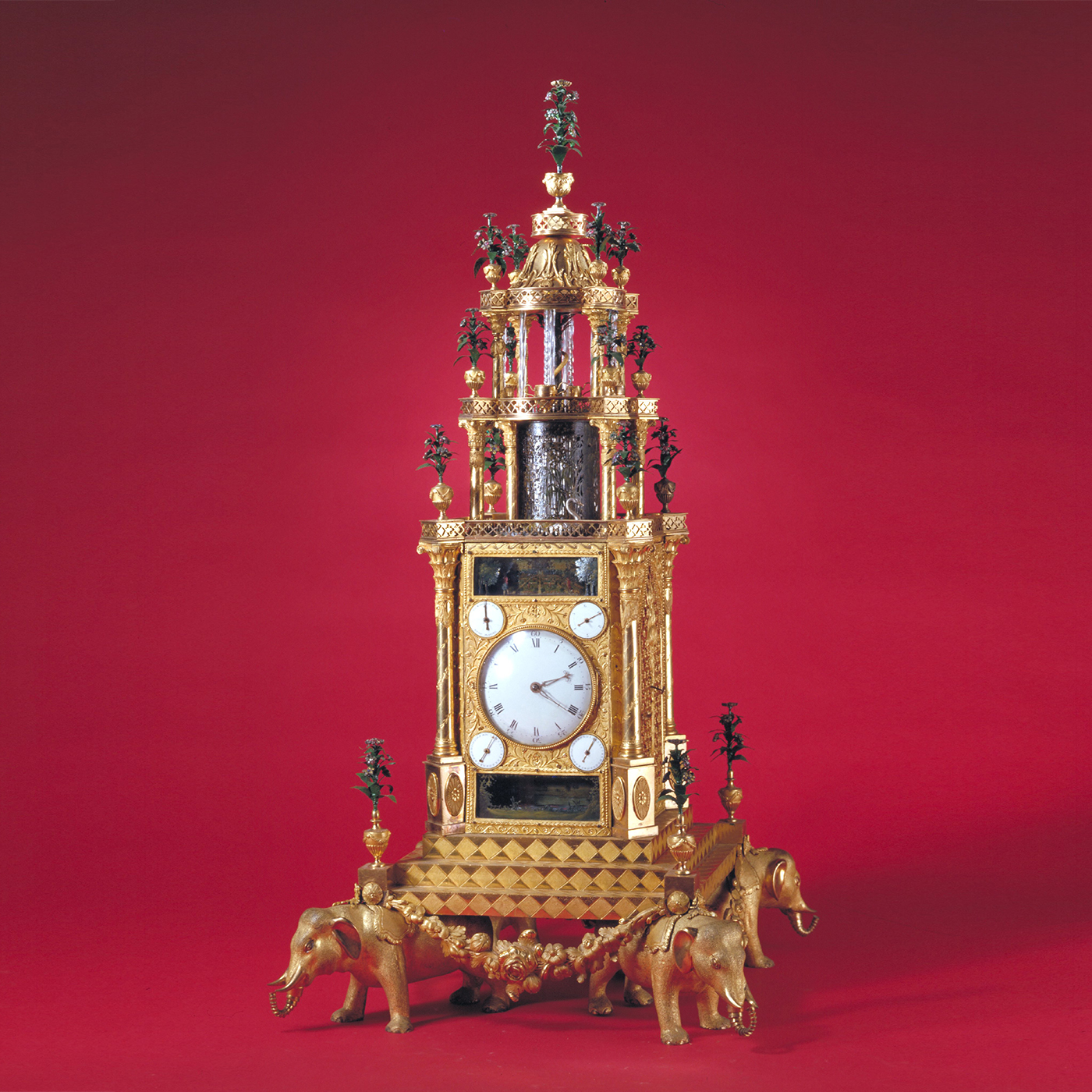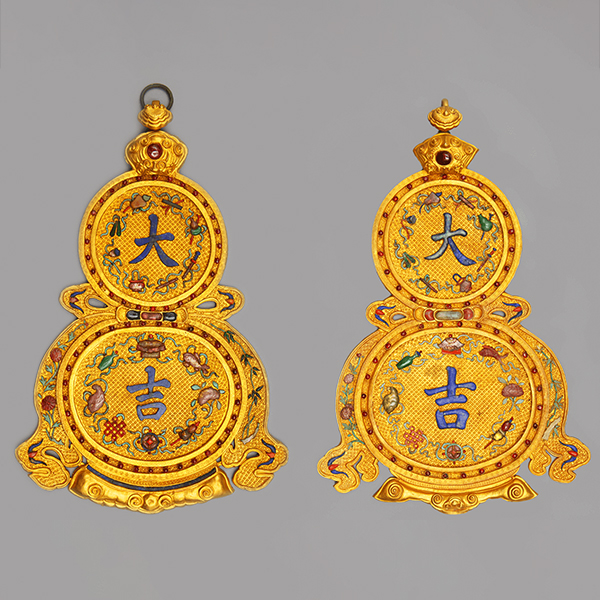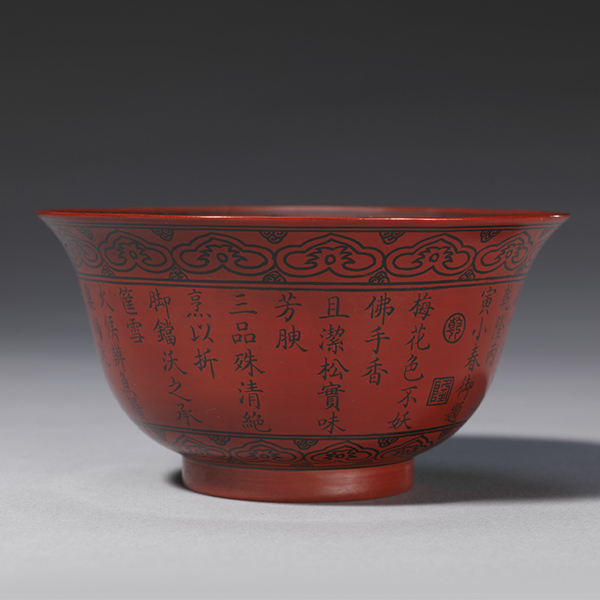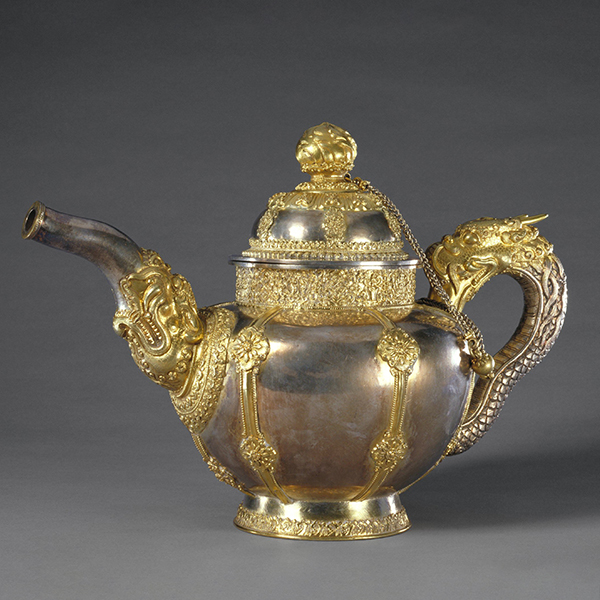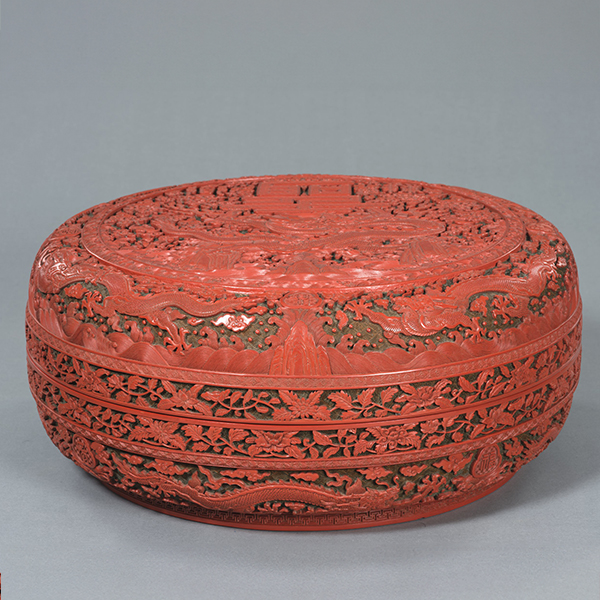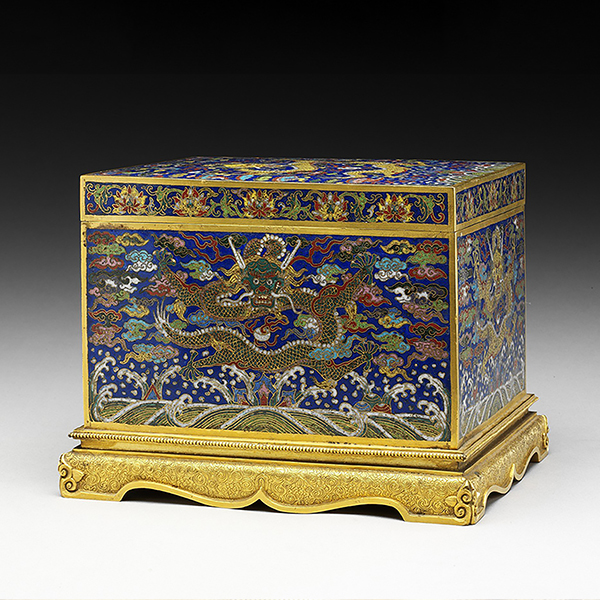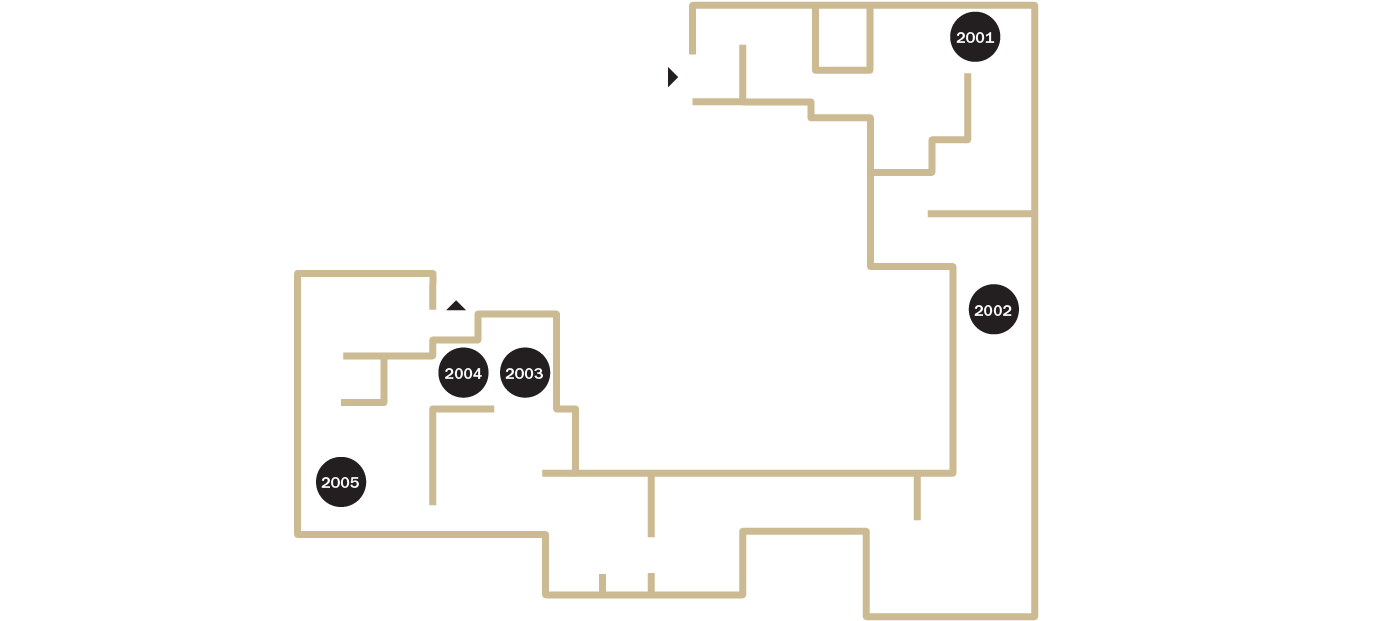Hangings were commonly found as decorative items in the palaces. The Qianlong Emperor commissioned the creation of double gourd-shaped hangings with auspicious characters. The shape of the hangings is taken from a homophonic pun on the Chinese name for the double gourd, “hulu”, alluding to the double blessing fortune and prosperity.
Pay attention to the details of these two hangings. The craftsmen used gold as the base material and decorated them with many precious materials. Take a closer look at the texture of the base of one of the hangings—the numerous coins imply protection against evil as well as wishes for blessings. The central two characters, “daji”, meaning great auspiciousness, are inlaid with blue lapis lazuli. The eight auspicious objects surrounding the character “da” (the upper character) are the emblems of the Eight Immortals of Taoism, collectively known as the "Hidden Eight Immortals". For example, the sword and gourd on the right side of the character “da” are the ritual instruments of the immortals Lü Dongbin and Li Tieguai, respectively.
The lower part of the gourd, surrounding the character “ji”, are the eight auspicious items symbolising good fortune and perfection in Buddhism. For example, below the character “ji” is the Dharma wheel, implicating the unceasing and perfect nature of Buddhist teachings.
